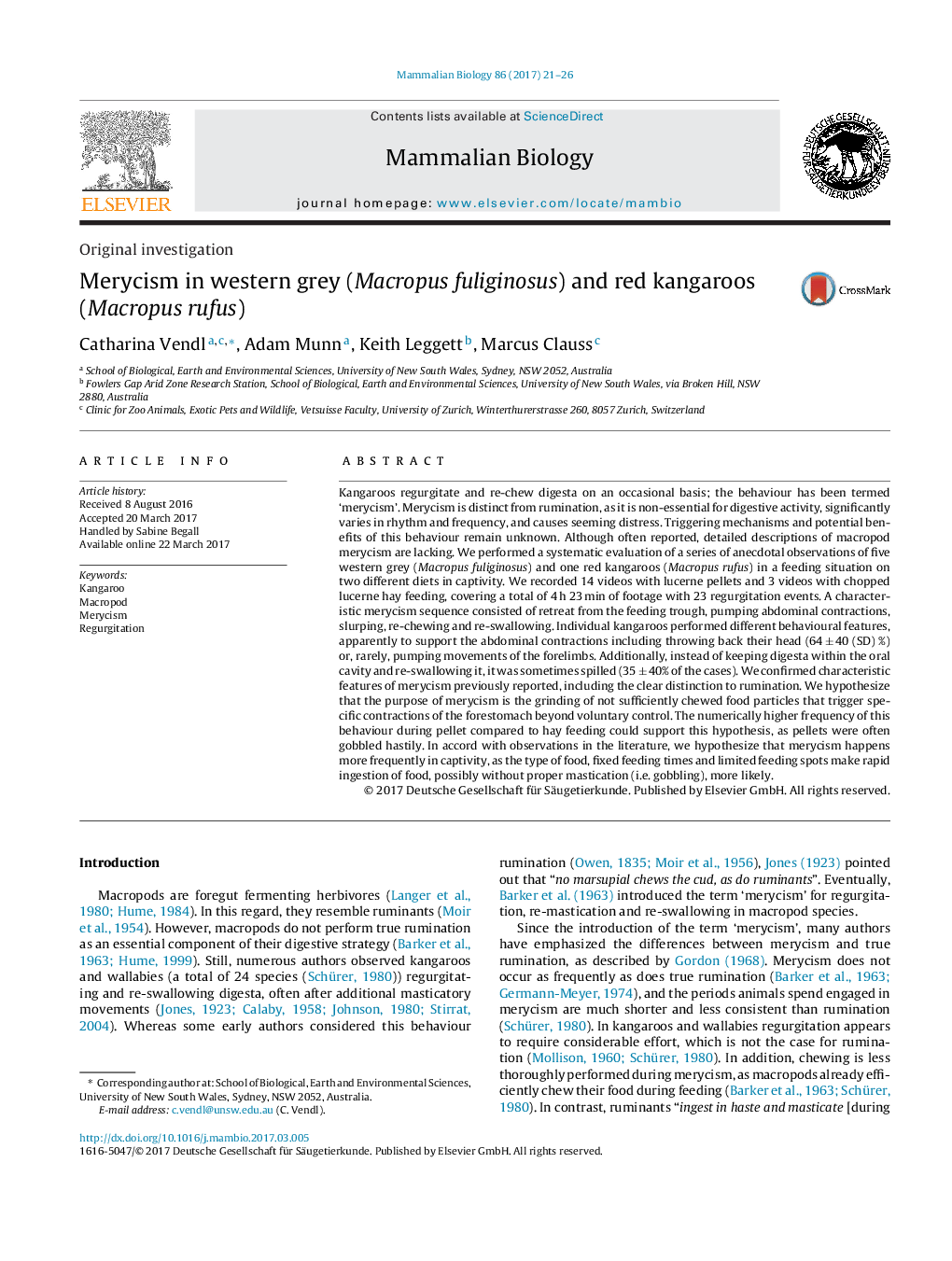| کد مقاله | کد نشریه | سال انتشار | مقاله انگلیسی | نسخه تمام متن |
|---|---|---|---|---|
| 5533752 | 1550461 | 2017 | 6 صفحه PDF | دانلود رایگان |

Kangaroos regurgitate and re-chew digesta on an occasional basis; the behaviour has been termed ‘merycism’. Merycism is distinct from rumination, as it is non-essential for digestive activity, significantly varies in rhythm and frequency, and causes seeming distress. Triggering mechanisms and potential benefits of this behaviour remain unknown. Although often reported, detailed descriptions of macropod merycism are lacking. We performed a systematic evaluation of a series of anecdotal observations of five western grey (Macropus fuliginosus) and one red kangaroos (Macropus rufus) in a feeding situation on two different diets in captivity. We recorded 14 videos with lucerne pellets and 3 videos with chopped lucerne hay feeding, covering a total of 4 h 23 min of footage with 23 regurgitation events. A characteristic merycism sequence consisted of retreat from the feeding trough, pumping abdominal contractions, slurping, re-chewing and re-swallowing. Individual kangaroos performed different behavioural features, apparently to support the abdominal contractions including throwing back their head (64 ± 40 (SD) %) or, rarely, pumping movements of the forelimbs. Additionally, instead of keeping digesta within the oral cavity and re-swallowing it, it was sometimes spilled (35 ± 40% of the cases). We confirmed characteristic features of merycism previously reported, including the clear distinction to rumination. We hypothesize that the purpose of merycism is the grinding of not sufficiently chewed food particles that trigger specific contractions of the forestomach beyond voluntary control. The numerically higher frequency of this behaviour during pellet compared to hay feeding could support this hypothesis, as pellets were often gobbled hastily. In accord with observations in the literature, we hypothesize that merycism happens more frequently in captivity, as the type of food, fixed feeding times and limited feeding spots make rapid ingestion of food, possibly without proper mastication (i.e. gobbling), more likely.
Journal: Mammalian Biology - Zeitschrift für Säugetierkunde - Volume 86, September 2017, Pages 21–26